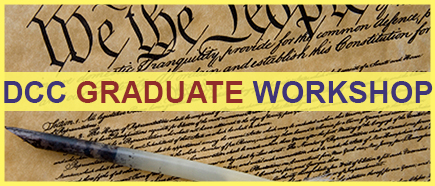College Hall, Room 209 (Accessibility)
Lunch provided.

Daniel Platt (American Studies, Brown University)
"From Contract to Status: Insolvency in Nineteenth-Century American Law"
Tesalia Rizzo (Political Science, MIT)
"How the Experience of a Programmatic State Discourages Clientelism"
DANIEL'S PAPER CONSIDERS THE NOVEL LEGAL INSTITUTIONS Americans created in the mid and late nineteenth century to regulate the relations between debtor and creditor. Unlike modern financial regulations, these measures did not aspire to stabilize the financial marketplace. Instead, they aimed to raise firm bulwarks around the vulnerable debtor, setting limits on what could be bought, sold, or seized in the financial marketplace, and when. Drawing on constitutional, legislative, and judicial records, this paper analyzes how this prohibitionary regime was constructed, how it functioned, and how it was contested in an age conventionally associated with an ascendant ideology of contract freedom.
TESALIA'S PAPER NOTES THAT IN MEXICO’S POOR AND MARGINALIZED communities, most citizens depend on clientelistic intermediaries to request universal government services and social programs available to them. Citizens are rarely aware of the full menu of local welfare benefits available, and they lack sufficient experience and resources to navigate the bureaucracy. These serve as effective self-enforcing mechanisms for citizen dependency on clientelistic structures. The paper provides evidence from a field experiment designed to lessen these obstacles by providing a non-clientelistic alternative to access the state. It finds that citizens are not only more likely to make requests to the state, the mere possibility of a non-clientelistic avenue to make requests increases their disapproval of clientelistic practices. Note: This paper is longer than usual. Please feel free to skip Sections 5 (sample selection) and 7 (discussion) if pressed for time.

 The Andrea Mitchell Center for the Study of Democracy
The Andrea Mitchell Center for the Study of Democracy